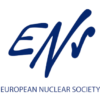In the Federal Republic of Germany – following corresponding studies in the USA – a comprehensive study designed to evaluate the riskIn risk comparisons in particular, a risk is frequently defi... from nuclear power plants has been prepared. The study was aimed at determining the riskIn risk comparisons in particular, a risk is frequently defi... involved in incidents and accidents in nuclear power plants, taking account of German conditions. Phase A was completed in August 1979 which involved initial riskIn risk comparisons in particular, a risk is frequently defi... investigations mainly aimed at assessing the riskIn risk comparisons in particular, a risk is frequently defi... involved in accidents in nuclear power plants and comparing it with other risks of civilization and nature. In Phase B of the German riskIn risk comparisons in particular, a risk is frequently defi... study, extensive research into the incidentSequence of events, on occurrence of which plant operation o... behaviour was carried out. In this context, the time sequence of the incidents, the impact involved and the interventionOperation in order to carry out maintenance work in plant se... of the safety systems provided to control the accidentUnplanned sequence of events which may result in an effectiv... or incidentSequence of events, on occurrence of which plant operation o... were thoroughly analysed. These investigations showed the importance of in-plant accidentUnplanned sequence of events which may result in an effectiv... management. The analyses demonstrated that in many cases nuclear power plants still have safety reserves when the safety systems do not intervene as intended and safety-related design limits are exceeded. These safety reserves can be used for in-plant accidentUnplanned sequence of events which may result in an effectiv... management to further reduce the riskIn risk comparisons in particular, a risk is frequently defi... resulting from accidents. RiskIn risk comparisons in particular, a risk is frequently defi... analyses are suitable to identify in-plant accidentUnplanned sequence of events which may result in an effectiv... management and to show how far they can reduce the riskIn risk comparisons in particular, a risk is frequently defi... involved in accidents. Investigations on in-plant accidentUnplanned sequence of events which may result in an effectiv... management occupy a central position in the work during phase B of the study. The “German RiskIn risk comparisons in particular, a risk is frequently defi... Study on Nuclear Power Plants Phase B” was published by the GRSSee 'Company for Industrial Plants and Nuclear Safety'. (Company for Industrial Plants and Nuclear SafetyThe GRS – Gesellschaft für Anlagen- and Reaktorsicherhe...) in June 1989.
- About us
- Scientific Resources
- Nuclear Basics
- Nuclear for Climate
- Education, Training & Careers
- Conferences and events
- Our Blog
